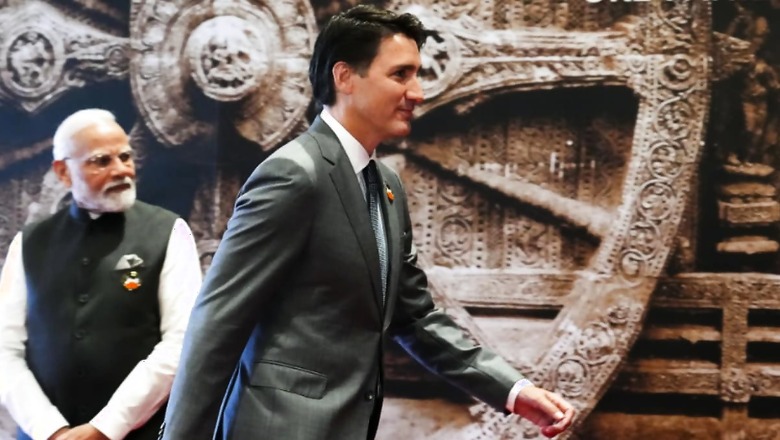
views
With India and Canada seeing new lows in their relations over the death of a Khalistani separatist leader, News18 spoke to two former Research and Analysis Wing (RA&W) chiefs and other IPS officers, who had also served in the intelligence gathering unit, to understand the diplomatic and administrative ramifications of the row.
They said removing diplomats over a geo-political row is quite a common practice but if a foreign country has enough evidence to substantiate an allegation against the official, the concerned government always asks the particular diplomat’s home country to strip him or her of the immunity. Until that point is reached, allegations and counter allegations are part of ‘international politics’ and ‘arm-twisting of some lobby groups’, they explained.
Justin Trudeau had last week accused “the agents of India” of their involvement in the killing of pro-Khalistani terrorist Hardeep Singh Nijjar outside a Gurdwara in Surrey on June 18. Nijjar, 45, was the leader of banned Khalistan Tiger Force (KTF).
Even though the Canadian Prime Minister spoke about “credible allegations” shared with India at House of Commons, there has not been any report of initiating a formal process by his government or registering a case against any officer serving in Indian mission in Canada.
As an immediate action, following the accusation, Canada expelled a senior IPS (Indian Police Service) officer, who was on deputation, and was serving as a diplomat in the mission.
The IPS officer’s expulsion by the Canadian government has created ripples in its national as well as international politics, even in India.
The experts say a country can expel a diplomat for many reasons, including the allegations made by the Canadian government that mention an officer of Punjab cadre running an agentry in Canada who played a key role in Nijjar’s killing. But allegations, until established with evidence, are always treated as “political” and not a “diplomatic crisis”, the experts stressed.
‘More Political, Less of a Diplomatic Crisis’
All countries have intelligence gathering units that include international and national agencies which have different names but some are anonymous too. Presence of RAW officers or other intelligence gathering units in a foreign mission are also not unique. The Ministry of Home Affairs and Ministry of External Affairs routinely seek nominations from the state governments or applications from the officers for international deputations.
IPS officers get posted to foreign locations who also serve in Indian missions for assignments including peace keeping forces, RAW, as supervising authority or part of security detail in the missions. In several cases, the IPS officers have been posted as part of the administrative or consular unit of the missions.
A former RAW chief spoke to News18 on condition of anonymity on the issue of diplomats’ expulsion. “For RAW or any such intelligence gathering unit of a country, such instances are routine and normal. If a foreign government finds out that an officer serving in a mission is creating trouble for them, they generally declare him or her as persona non grata and expel. But that does not necessarily mean that the officer is accused of some mischief”.
“If the concerned foreign government has evidence, documents or proofs to substantiate their accusations, they may detain the officer and ask his or her home country to strip the diplomatic immunity, following which the officer can be arrested. But these instances are rare. In the current India-Canada row, as much as we can analyse with available documents and inputs, it looks like more of political exchanges, and less of a real diplomatic crisis,” he added.
Another senior officer who served in RAW said, “India and Pakistan witnessed similar situations earlier. These kinds of situations are very common between the US and China, or the US and Russia. However, all governments always try to protect the officer’s identity, exposing an officer like this, not taking immediate actions against the posters or threats coming the officers’ way is not the manner these situations are dealt with”.












Comments
0 comment